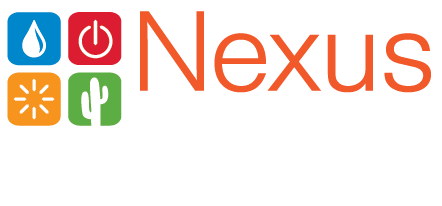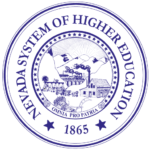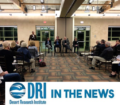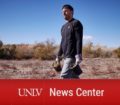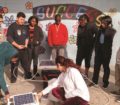Virtual Mentoring Institute: Practical Strategies for Inclusive Mentoring in Undergraduate Research for the Nevada System of Higher Education (NSHE)
November 8-10, 2021
1:00-2:30 PM PDT
About the Retreat
– Explore salient/best-practices in research mentoring;
– Discuss the value of “tiered-peer mentoring” and the effectiveness of enabling students as mentors; and
– Discover strategies that foster equity and inclusion of diverse populations in research mentoring.
Please register by Friday, November 5, 2021. All participants agree to fully participate in all sessions of the series, as well as the individual group sessions and pre-/post assessments.
This is the second annual Mentoring Institute hosted by NSHE and CUR, designed to provide resources, infrastructure and connectivity, to support research and workforce development in STEM. It’s important for each NSHE institution to have representatives in attendance who are willing and able to further foster research mentoring within their programs, departments and/or institutions. Administrative, faculty and student representation from each NSHE campus is ideal as individualized/team working sessions will be held.
Outcomes
This interactive virtual workshop series will introduce faculty, postdocs and graduate students to the why, what and how of mentoring undergraduates in Science, Technology, Engineering and Math (STEM) research in a wide range of institutional contexts. Participants will leave with the tools to craft a philosophy for a more inclusive and equitable approach to mentoring while connecting with colleagues throughout Nevada.
The 2021 NSHE Mentoring Institute will provide the following deliverables to the participants:
– Providing the latest literature and resources on inclusive mentoring.
– Identifying more equitable approaches for outreach to broaden student participation in undergraduate research.
– Interrogating your campus culture and drawing attention to norms and barriers that could impact student engagement in undergraduate research.
– Developing your own mentoring philosophy statement that can be shared with your mentees and/or research groups.
– Connecting with other NSHE institutions and colleagues.
– Establishing a Council on Undergraduate Research (CUR) community of engagement and sharing of resources.
Structure
Each workshop will combine interactive, facilitator-led discussions with objective-focused breakouts while providing materials to aid participants in mentoring students. Sessions will build on each other but may standalone. Participants are encouraged to attend all three sessions to fully develop their philosophy and continue discussions in our online community.
Session 1 – November 8, 2021 – 1:00 PM – 2:30 PM PDT
In this interactive session, participants will discuss best practices in mentoring undergraduate researchers with colleagues from many types of institutions. With Culturally Aware Mentoring (CAM), we will focus on equity and inclusion in the practice of mentorship. We will also explore a range of models to support faculty efforts and meet the emerging needs of mentees, highlighting tiered mentoring to enable students as mentors.
Session 2 – November 9, 2021 – 1:00 PM – 2:30 PM PDT
This session will lead with an interactive panel discussion featuring colleagues from the Nevada System of Higher Education (NSHE) and experts in Culturally Aware Mentoring (CAM) from the National Research Mentoring Network (NRMN). Following the panel discussion, participants will apply insights to develop a more inclusive and equitable approach to their mentoring and begin drafting a personal mentoring philosophy.
Session 3 – November 10, 2021 – 1:00 PM – 2:30 PM PDT
In this workshop, participants will be guided in the development of a more inclusive and equitable mentoring philosophy/style with focused-discussions about access, recruitment, selection and retention. In conversation with colleagues, participants will examine the stories we tell about the work we do and learn new ways to engage students in meaningful conversations about undergraduate research.
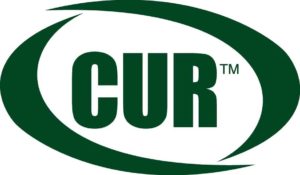 The Council on Undergraduate Research (CUR) offers consulting and mentoring services to individuals, academic departments, schools/colleges, and entire campuses. CUR provides these services by calling upon academic professionals who share its vision and goals; are experts in undergraduate research theory, practice, and assessment; have an understanding of higher education budget and policy issues; and are leaders in undergraduate education quality and sustainable institutional change. CUR’s faculty and administrative consultants, program reviewers, meeting facilitators, and mentors are experienced in visiting academic institutions, listening to your needs, and providing the help you need. Unlike the departmental program review service, the consulting service targets multi-departmental and/or institution-wide needs.
The Council on Undergraduate Research (CUR) offers consulting and mentoring services to individuals, academic departments, schools/colleges, and entire campuses. CUR provides these services by calling upon academic professionals who share its vision and goals; are experts in undergraduate research theory, practice, and assessment; have an understanding of higher education budget and policy issues; and are leaders in undergraduate education quality and sustainable institutional change. CUR’s faculty and administrative consultants, program reviewers, meeting facilitators, and mentors are experienced in visiting academic institutions, listening to your needs, and providing the help you need. Unlike the departmental program review service, the consulting service targets multi-departmental and/or institution-wide needs.
Meet the Mentoring Institute Facilitators
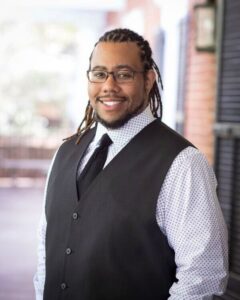 Timothy A. Raines, PhD, Associate Director, Undergraduate Research Programs (URP), Emory College of Arts and Sciences
Timothy A. Raines, PhD, Associate Director, Undergraduate Research Programs (URP), Emory College of Arts and Sciences
Tim Raines is a first-generation college student who earned his Ph.D. in Cancer Biology. He is currently the Associate Director of Undergraduate Research at Emory University where he directs the strategic planning, development, and implementation of undergraduate research programs by expanding the support infrastructure; increasing department and program participation; and establishing specialized programs that target students with specific academic and research interests. Moreover, he is a thought leader in increasing access and inclusion in undergraduate research. He consults with universities and colleges on facilitating discussions around development of inclusive mentoring practices for faculty, post-docs, and graduate students. Lastly, he provides resources and services to undergraduate students to address their academic and professional needs as they pursue doctoral degrees; whether it’s assisting with graduate school applications, editing and revising personal statements and resumes, providing interview preparation, he provides students with the tools necessary to develop and implement a plan for success.
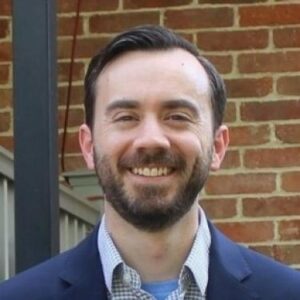 Tim O’Neil, MA, Assistant Director, Undergraduate Enrichment Programs, University of Colorado, Boulder
Tim O’Neil, MA, Assistant Director, Undergraduate Enrichment Programs, University of Colorado, Boulder
Tim O’Neil is the Assistant Director of Undergraduate Enrichment Programs at the University of Colorado Boulder, where he leads a tutorial series called the “Curiosity Lab” for the Norlin and Boettcher Scholars and manages university-wide funding in the Undergraduate Research Opportunities Program (UROP) and the Professional and Academic Conference Endowment (PACE). Tim is a councilor in the programs division of the Council on Undergraduate Research and serves on the CU Boulder steering committee for the Inclusive Community of Practice. With the “Lightbulb Moment” storytelling initiative, he promotes narrative thinking as a pathway to the academic and creative life of the university—and self-discovery.
Resources will be provided later.
For more information contact:
Michele Casella
Education, Outreach and Diversity Administrator
mcasella@nshe.nevada.edu
702-522-7076
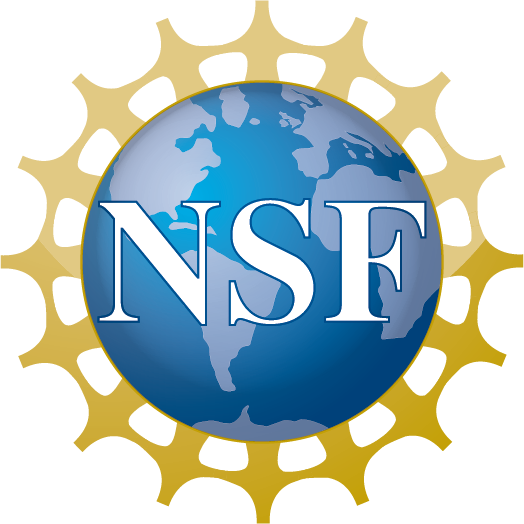
This workshop is sponsored by the National Science Foundation’s Experimental Program to Stimulate Competitive Research (NSF EPSCoR), Award #IIA-1301726.
